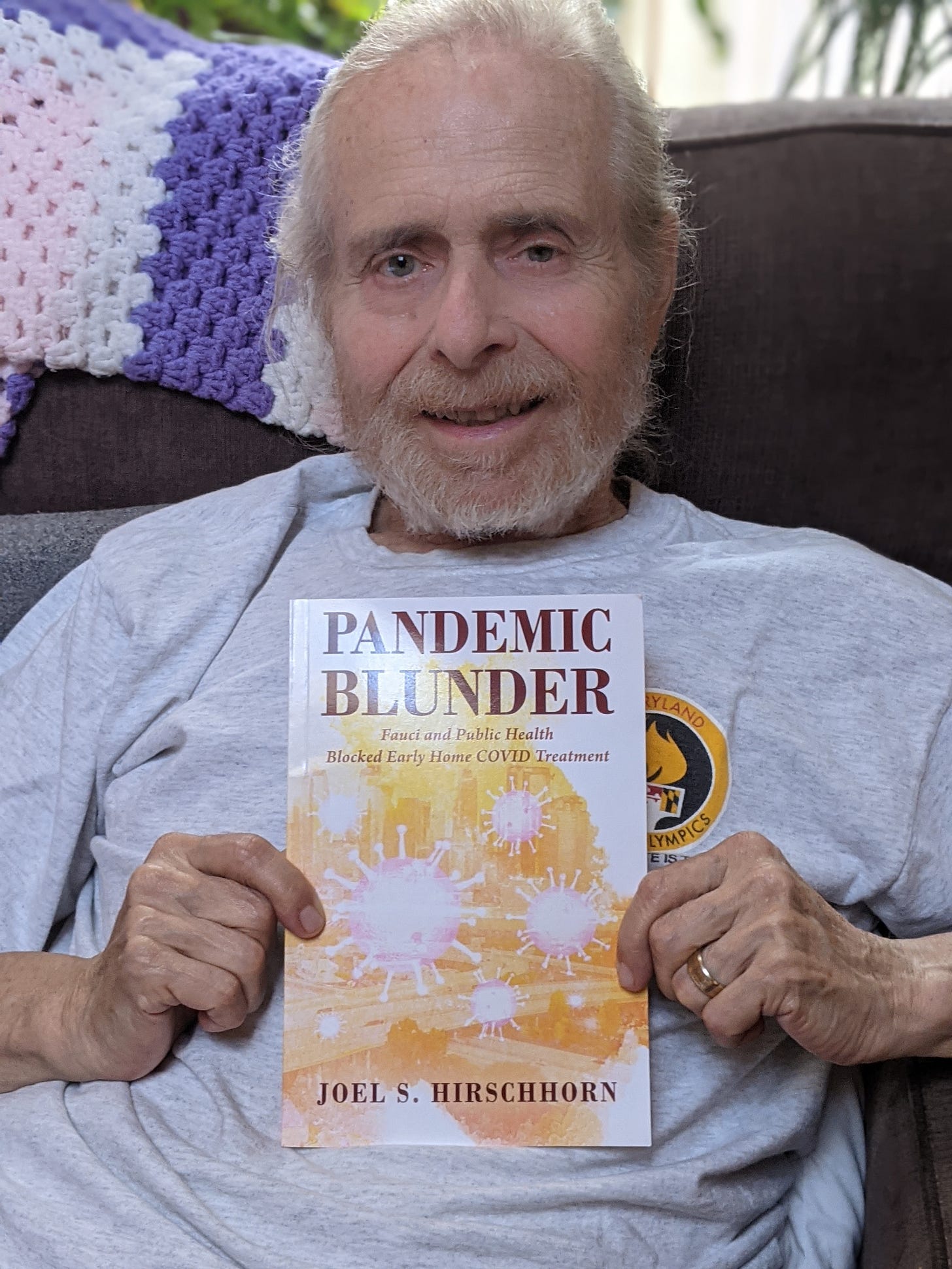Details on COVID vaccine risks
Three studies provide important insights; still reasonable to believe risks outweigh benefits for most people
Serious Adverse Events of Special Interest Following mRNA Vaccination in Randomized Trials
Here is the abstract:
Introduction: In 2020, prior to COVID-19 vaccine rollout, the Coalition for Epidemic Preparedness Innovations and Brighton Collaboration created a priority list, endorsed by the World Health Organization, of potential adverse events relevant to COVID-19 vaccines. We leveraged the Brighton Collaboration list to evaluate serious adverse events of special interest observed in phase III randomized trials of mRNA COVID-19 vaccines.
Methods: Secondary analysis of serious adverse events reported in the placebo-controlled, phase III randomized clinical trials of Pfizer and Moderna mRNA COVID-19 vaccines (NCT04368728 and NCT04470427), focusing analysis on potential adverse events of special interest identified by the Brighton Collaboration.
Results: Pfizer and Moderna mRNA COVID-19 vaccines were associated with an increased risk of serious adverse events of special interest, with an absolute risk increase of 10.1 and 15.1 per 10,000 vaccinated over placebo baselines of 17.6 and 42.2 (95% CI -0.4 to 20.6 and -3.6 to 33.8), respectively. Combined, the mRNA vaccines were associated with an absolute risk increase of serious adverse events of special interest of 12.5 per 10,000 (95% CI 2.1 to 22.9). The excess risk of serious adverse events of special interest surpassed the risk reduction for COVID-19 hospitalization relative to the placebo group in both Pfizer and Moderna trials (2.3 and 6.4 per 10,000 participants, respectively). [emphasis added]
Discussion: The excess risk of serious adverse events found in our study points to the need for formal harm-benefit analyses, particularly those that are stratified according to risk of serious COVID-19 outcomes such as hospitalization or death.
Randomised Clinical Trials of COVID-19 Vaccines: Do Adenovirus-Vector Vaccines Have Beneficial Non-Specific Effects?
Abstract
To examine the possible non-specific effects (NSEs) of the novel COVID-19 vaccines, we reviewed the randomised control trials (RCTs) of mRNA and adenovirus-vector COVID-19 vaccines reporting overall mortality, including COVID-19 deaths, accident deaths, cardiovascular deaths and other non-COVID-19 deaths. For overall mortality, with 74,193 participants and 61 deaths (mRNA:31; placebo:30), the relative risk (RR) for the two mRNA vaccines compared with placebo was 1.03 (95% CI=0.63-1.71). In the adenovirus-vector vaccines there were 122,164 participants and 46 deaths (vaccine:16; controls:30). The RR for adenovirus-vector vaccines versus placebo/control vaccine was 0.37 (0.19-0.70). The adenovirus-vector vaccines were associated with protection against COVID-19 deaths (RR=0.11 (0.02-0.87)) and non-accident, non-COVID-19 deaths (RR=0.38 (0.17-0.88)). The two types of vaccines differed significantly with respect to impact on overall mortality (p=0.030) as well as non-accident, non-COVID-19 deaths (p=0.046). The placebo controlled RCTs of COVID-19 vaccines were halted rapidly due to clear effects on COVID-19 infections. However, the data presented here argue for performing RCTs of mRNA and adeno-vectored vaccines head-to-head comparing long-term effects on overall mortality.
Key finding:
“Based on the RCTs with the longest possible follow-up, mRNA vaccines had no effect on overall mortality despite protecting against fatal COVID-19.”
“Ironically, the rich countries in Europe and USA have emphasized the more expensive mRNA vaccines because these vaccines have slightly better short-term vaccine efficacy against COVID-19 than the relatively inexpensive adenovirus-vector vaccines, and due to the detection of a rare blood clotting disorder associated with the adenovirus-vector vaccines. While this decision is understandable in the short-term during a situation with high COVID-19-related mortality, in the endemic situation in which COVID-19-related deaths have decreased this decision may need to be reassessed.”
In other words, the long term risks of the mRNA vaccines can be very significant.
Are the Covid mRNA Vaccines Safe?
Here is the bottome line conclusion regarding the mRNA vaccines:
“It is the responsibility of the manufacturers and FDA to ensure that benefits outweigh harms. They have failed to do so.”
Regarding “adverse events of special interest” (AESI) here are some points.
“There were 139 AESIs among the 33,986 people vaccinated, one for every 244 people. That may sound bad, but those numbers mean nothing without comparison against a control group. There were 97 AESIs among the 33,951 people who received a placebo. Combining these numbers implies 12.5 vaccine-induced AESIs for every 10,000 people vaccinated, with a 95% confidence interval of 2.1 to 22.9 per 10,000 people. To phrase it differently, there is one additional AESI for every 800 people vaccinated (95% CI: 437-4762).
That is very high for a vaccine. No other vaccine on the market comes close. “
“Most excess AESIs were coagulation [blood] disorders. For the Pfizer vaccine, there was also an excess of cardiovascular AESIs. “
These are the main conclusions: [edited]
“Covid-recovered people have natural immunity that is stronger than vaccine-induced immunity. So, the benefit of vaccination is – at best – minimal. If the risk of adverse reactions is the same as in the randomized trials, there is a negative risk-benefit difference. Why are we mandating people in this group to be vaccinated? It is both unethical and damaging to public health.
While everyone can get infected, children have a minuscule risk of covid mortality. There is very limited safety data from the trials on children. If the risk of adverse reactions is the same as for adults, the harms outweigh the risks. Children should not receive these vaccines.
Older people above 70 have a much higher risk of covid mortality than the population in the Fraiman study. If their risk of adverse reaction is the same, then the benefits outweigh the harms. Hence, older people who have never had covid and are not yet vaccinated may benefit from these vaccines.
It is unclear from the clinical trial data whether the benefits outweigh the risks for working-age adults who have not been vaccinated and who have not already had covid. This is true both historically, for the original covid variants, and currently for the newer ones.
Both risks and benefits may differ for booster shots, but no randomized trial has properly evaluated the trade-off.”




